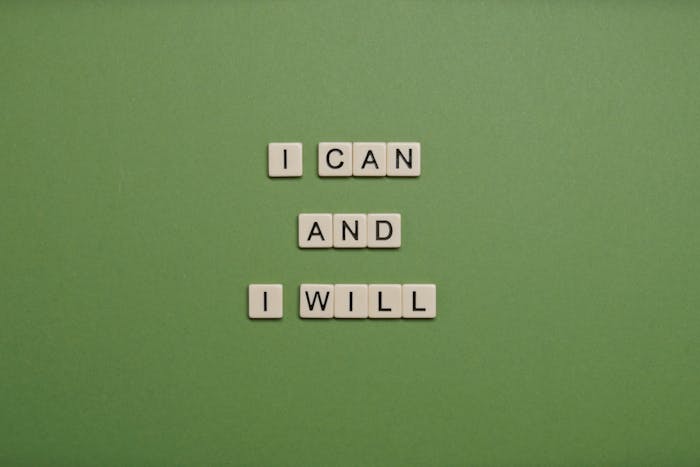Meditation has become an increasingly popular technique when it comes to overcoming addiction and mental health issues.
There are many different types of meditation techniques, including mindfulness, guided meditation, breath work and mantras.
Meditation is a fantastic way of controlling the mind, which can be a crucial tool when it comes to overcoming illnesses such as addiction issues and mental health issues.
People are using mantras more than ever to affirm their thoughts and help guide their thinking to assist their recovery.
According to a well-researched medical journal, meditation mantras have been used for decades to help with a range of health issues including addiction, anxiety, pain, depression, stress, and insomnia [1].
This article examines exactly what a mantra is, the different types of mantras there are and how they might be able to benefit someone who is struggling from an addiction issue or are on their way to recovering from an addiction issue or mental health illness.

A mantra is essentially a phrase, sound or word that you repeat on a regular basis that has a positive impact. This word is repeated so that you focus your mind on its meaning, anchoring you in the present moment and thought process.
Mantras come from a spiritual background, and from certain religions such as Hinduism and Buddhism [2]. They are also commonly used in yoga.
A mantra can be whatever you want it to be, with some people choosing to focus on full sentences whereas others might focus on just one word or even a nonsensical phrase or even sound.
There are no hard and fast rules when it comes to what your mantra should be, as it should be whatever works for you, in that exact moment.
There are a few different types of mantras and, to get the most out of your meditation session, you should experiment with different types.
Some people choose to create their own mantras, whereas others choose from a list provided by a meditation specialist or their therapist.
The main objective of meditation is to provide you with some form of peace, and that can look different for everyone. There are 3 main types of mantras to choose from, which are loving mantras, focused mantras and spiritual mantras.
Loving mantras are phrases such as ‘I am happy’ or ‘I am healthy or ‘I am at peace.’
These are the types of mantras which presume that you are already these things that you want to be, which draws upon the law of attraction.
The idea behind the law of attraction is that the more you believe something, the more you will naturally attract it.
For example, if you believe that you are going to be rich one day, you will naturally work hard to make sure that it happens.
The same comes with these different types of mantras. The more you tell the world you are happy, the more likely you are to attract happiness. The same could be said when it comes to mantras around peace or addiction recovery.
Focused mantras are when you use words such as ‘in’ and ‘out’ as you breathe heavily. This will help you to focus on your thoughts and mind.
Spiritual mantras allow you to focus on the divine, which for many people brings them a lot of peace. This could be in any language you want, and connected to any religion you want, too.
There are some small differences between mantras, affirmations and intentions, although some might say that they are very similar.
Mantras focus on things such as acceptance and a spiritual presence, whilst trying to use the law of attraction to attract a better life.
Affirmations work differently in that they are direct statements, which will allow you to overcome a challenge, such as a mental health issue or an addiction issue.
This will help them to change an internal or external belief that they have, such as the fact that they cannot recover from an addiction, or that they do not deserve to recover in the first place.
Intention is more of a positive framework and belief system that people will need to work hard on to achieve.
By creating positive intentions, people will strive to live a better life with an end goal. People tend to set intentions, rather than practice mantras.

There are a number of benefits associated with practising mantras on a regular basis.
Whilst some people might be closed off to the idea of saying mantras, many people often find that after trying it for the first time, the benefits are clear [2,3].
Many people find that by saying mantras on a regular basis, they experience reduced stress and anxiety.
The more you focus, the more the worries and stresses of everyday life seem to fade.
By focusing on just a word or a phrase, your mind is focused, and you find a sense of peace. This is particularly helpful if you suffer from addiction issues alongside mental health issues, as your mind might feel like it is racing day to day.
By repeating kind words on a regular basis and by dedicating more time to yourself and your health, you will naturally come more compassionate for yourself.
By practising mantras, you will start to be kinder to yourself and become more aware of how you feel.
Likewise, by practising mantras on a regular basis, you will naturally become more self-aware as to how you feel, what your issues might be and how you might need to overcome them.
Most people who suffer from addiction issues never dedicate time to themselves to focus on what the root cause might be.
By taking time out to meditate, you will naturally become more aware of how you feel and how you might be able to recover.
By using meditation and mantras, your ability to focus will be improved. It’s not easy to focus in today’s world, especially when you suffer from an addiction issue or mental health illness.
By focusing your mind, you will gain a sense of peace, control and potentially some enlightenment.
You are more likely to experience better quality of sleep if you practise meditation and mantras on a regular basis.
Saying mantras helps to reduce your stress levels, therefore making it easier for you to sleep and to stay asleep once you do fall asleep.
Believe it or not, repeating mantras on a regular basis will also help you to be more creative.
This is because practising meditation and mantras can help you to strengthen your connection to your intuition and will help you to achieve a state of flow.
Flow is a state that you are able to achieve when you are doing something creative that you love and feel fully at ease and focused when doing so.
Below are some examples of mantras you might want to try:
Not all of these mantras will work for everyone, and you might want to pick and choose which mantras you say to yourself.
The key thing that you want to remember is that there are no hard and fast rules when it comes to meditation or saying mantras.
Try what works best for you and don’t give up on the first try – it might take a few days or even weeks of repeating mantras until you experience the full benefits they hold.

Again, there are no hard and fast rules when it comes to how you should use mantra meditation or how often you should use it to heal yourself.
Some people say that using mantra meditation every day will help, even if it’s just for a few minutes each day.
Some people create a habit and a routine to help them stay on track, with some people meditating first thing in the morning, with others choosing to meditate and repeat their mantras just before they go to bed.
If you suffer from an addiction issue, then you might want to consider using meditation and mantra meditation specifically to help you to overcome your addiction issues.
Meditation has been used in addiction recovery and therapy for decades, as it helps to relax the mind and calm your nervous system.
A lot of inpatient rehab centres use meditation as part of their recovery process to help people when they undergo a medical detox, which can put particular pressure and stress on your body and mind.
If you are currently undergoing a detox or have been discharged from a rehab centre and are currently undergoing aftercare, then you should consider using meditation on a regular basis to help you stay on track with your recovery.

If you are currently undergoing treatment for an addiction issue and are interested in holistic therapy and meditation as a recovery technique, then speak to a member of the Rehab 4 Addiction team.
Our team of specialists are able to talk you through what your recovery might look like and recommend the best inpatient and outpatient rehab facilities for you in your specific area.
Our team of specialists will never put any pressure on you to admit yourself into a rehab centre. The team at Rehab 4 Addiction will simply be providing you with all of the necessary information you need to make a decision about what is right for you.
Speak to our friendly and professional team today by calling our helpline on 0800 140 4690 or by visiting us online by searching for www.rehab4addiction.co.uk
[1] https://portsmouthva.gov/DocumentCenter/View/4393/what-is-meditation